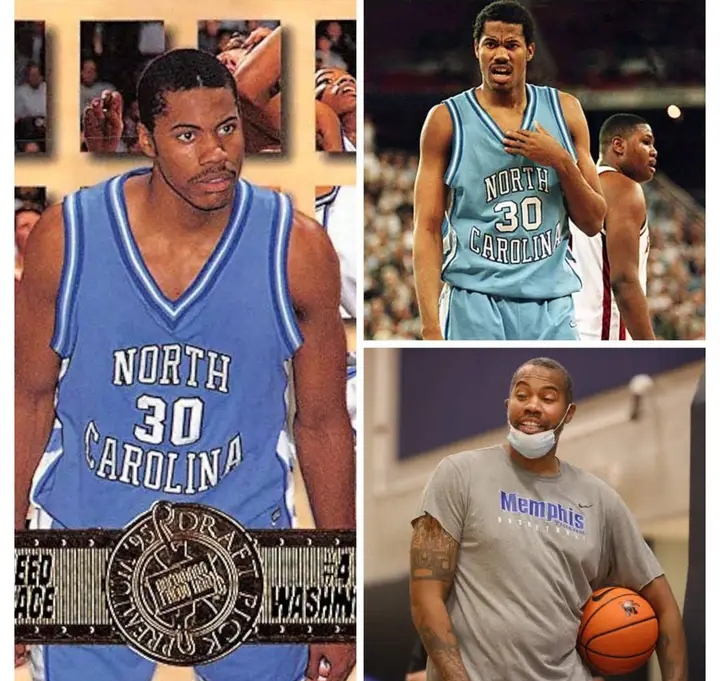**ESPN Explains in Detail the Untold Fire of Rasheed Wallace: Why UNC’s Fieriest Star of the 1990s Still Divides Tar Heel Fans, Inspires Heated Debates About What Could Have Been, and Remains One of the Most Electrifying Legends to Ever Wear Carolina Blue**

In the long, storied history of North Carolina basketball, few players have left behind a legacy as emotionally charged and polarizing as Rasheed Wallace. As ESPN’s recent deep-dive feature explores, Wallace’s two-year tenure in Chapel Hill during the mid-1990s remains one of the most captivating “what if” chapters in UNC’s basketball saga — filled with jaw-dropping athleticism, volatile moments, and the undeniable aura of unrealized potential.
**The Talent That Couldn’t Be Ignored**
When Rasheed Wallace arrived at UNC in 1993, he brought with him a rare mix of size, skill, and swagger. At 6-foot-10 with a wingspan that could swallow opponents whole, he possessed a silky smooth jump shot, elite shot-blocking instincts, and a feel for the game that belied his youth. Under legendary coach Dean Smith, Wallace quickly became a force on both ends of the floor, averaging 13.0 points, 7.4 rebounds, and 2.3 blocks per game over his college career.
“From a pure talent perspective, Rasheed was one of the most gifted big men to ever wear Carolina Blue,” former teammate Jerry Stackhouse told ESPN. “He could stretch the floor before it was trendy, and he could defend without fouling—until his temper flared.”
**The Fire That Divided Fans**
Wallace was as famous for his on-court outbursts as he was for his athletic brilliance. While his passion and intensity energized teammates, it also created friction—both within the program and among fans. Technical fouls, emotional eruptions, and visible frustration were part of the package. Some Tar Heel faithful admired his unapologetic fire, while others saw it as a distraction from the program’s traditionally composed image.
“There were moments when he let his emotions get the better of him,” former UNC assistant coach Phil Ford admitted. “But there were also moments where that fire lifted the entire team. He wasn’t a villain — he was just real.”
**What Could Have Been**
After a heartbreaking Final Four loss to Arkansas in 1995, Wallace declared for the NBA Draft, foregoing his final two years of eligibility. Many UNC fans still debate whether he should have stayed—especially considering how close that team came to winning it all. “If Sheed had come back one more year, there’s no doubt we would’ve won a national title,” said one die-hard fan in the ESPN article. “He and Stackhouse were unstoppable.”
His early departure sparked a generation of “what if” conversations that still surface on UNC fan forums and barstools alike. Could he have become one of the all-time greats in college basketball? Would a championship have changed the narrative?
**A Legend, Regardless**
Today, Wallace’s time in Chapel Hill is viewed through a lens of complexity. He’s not simply remembered for the fiery technicals or the early exit, but for the electricity he brought to every game. His fearless attitude, raw emotion, and willingness to be unapologetically himself carved out a legacy that still echoes in the Dean Dome.
Whether you loved him or questioned him, one thing is certain: Rasheed Wallace’s fire helped shape an unforgettable era of UNC basketball.
Be the first to comment